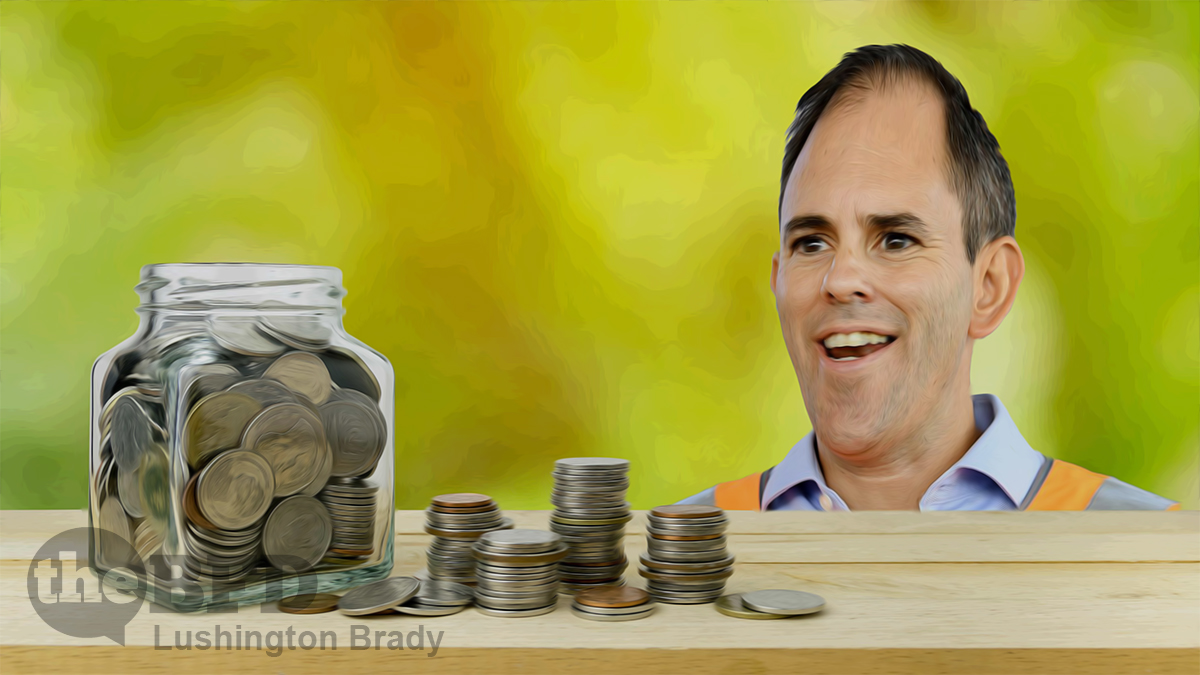It seems too good to be true: a Labor Treasurer delivering a budget surplus. It would, after all, be the first time that’s happened in nearly 40 years.
Like all such fairy stories, if it sounds too good to be true, well, it kinda sorta isn’t… not wholly untrue, but definitely not what it seems.
First off: yes, in a complete surprise probably even to the government, Jim Chalmers’ second budget will feature a very modest surplus: $4 billion.
But there’s a lot more to that story. The surplus has only become possible because, firstly, the previous government was too conservative in its revenue estimates, and, secondly, because of an unexpected windfall from resources.
Put bluntly, Jim Chalmers is a bloke who’s turned out what he thought were empty pockets and been surprised to find a 20-buck note fall out.
So, naturally, he’s going to blow the lot and wind up broke for real tomorrow.
The Australian economy will suffer its biggest slowdown since the depths of the Covid pandemic as the combination of high interest rates and high inflation sharply reduces the spending power of the nation’s consumers.
And that teeny-tiny surplus will drop right back down to a string of deficits.
The economy is expected to grow by between 1.25 per cent and 1.5 per cent in the 2023-24 financial year. It would be the slowest annual growth rate since the country largely reopened after the early pandemic shutdowns of 2020.
It would be a sharp slowdown compared to 2022 when the economy expanded by 2.7 per cent.
And, behind the cock-a-whoop strutting about a surplus, Australians are being hit by very real economic pain.
The slowdown will be driven by cash-strapped consumers. The budget is expected to show household consumption, which grew by 5.4 per cent through 2022, to more than halve in the coming financial year.
The drop in spending will feed into the jobs market. Unemployment, still at an equal 50-year low of 3.5 per cent, will be forecast to climb over the next 12 to 18 months. By 2025, it is expected to be above 4 per cent.
The government, in true socialist style, is trying to paper over it all by throwing around other peoples’ money.
Inflation, which peaked at 7.8 per cent in December, will be forecast to fall over the next 18 months in part due to the impact of the government’s $14.6 billion energy relief package.
On the other hand, the government’s spending splurge, as well as its climate-deranged energy policies, which are driving up the cost of living, will surely put upward pressure on inflation.
The engine of the economy, small-to-medium business, is being belted.
More than a third of businesses said their top pressure was the cost of utilities, with 34 per cent ranking fuel prices as their most pressing concern while 32 per cent ranked interest rates.
The survey, of 1000 small and medium-sized firms, found 44 per cent expect a recession within the coming year.
Sydney Morning Herald
In fact, this is all beginning to sound a bit grimly familiar: persistent inflation, slowing economic growth, rising unemployment…
Stagflation, anyone?

